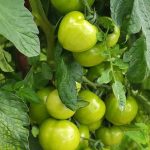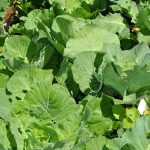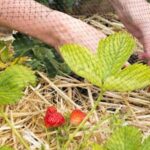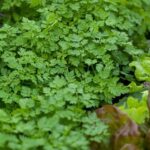Homemade pesticide for vegetable gardens is an essential tool in maintaining the health and vitality of your plants. As gardeners, we often face the challenge of dealing with pesky pests that can wreak havoc on our vegetables. This article will explore the need for homemade pesticides, common pests found in vegetable gardens, the dangers of chemical pesticides, and the benefits of using natural alternatives.
In order to effectively combat pests in your vegetable garden, it is crucial to first identify the different types of insects and diseases that commonly plague these plants. Understanding the specific culprits will enable you to tailor your pest control approach accordingly. Additionally, it is important to acknowledge the potential harm that chemical pesticides can pose to both the environment and our health, making homemade pesticide a safer and more sustainable option.
One natural alternative to chemical pesticides is harnessing the power of essential oils. These oils have been found to be effective in controlling pests while also being safe for use around children and pets. In this article, we will delve into how essential oils can be used as a natural pesticide in vegetable gardens, promoting a healthier and more eco-friendly approach to pest control.
Common Pests in Vegetable Gardens
When it comes to growing vegetables in your garden, one of the biggest challenges is dealing with pests. These pesky invaders can wreak havoc on your plants, from munching on leaves to sucking the life out of your crops. Identifying the common pests in vegetable gardens is crucial for understanding the need for homemade pesticide for vegetable gardens.
Identifying Common Pests
Some of the most common pests that can plague your vegetable garden include aphids, caterpillars, mites, and beetles. Aphids are tiny insects that suck the sap out of plants, causing them to wilt and die. Caterpillars can devour entire leaves and even bore into fruits or vegetables. Mites are microscopic pests that can cause stippling on leaves and eventually lead to plant death. Beetles, such as the Colorado potato beetle, can defoliate plants if left unchecked.
Understanding the Damage
It’s important to be able to identify the signs of pest damage in your vegetable garden. This includes holes in leaves, chewed or damaged fruits and vegetables, wilting plants, and tiny webs or stippling on leaves. By recognizing these symptoms early on, you can take proactive measures to protect your crops and prevent further damage.
The Importance of Homemade Pesticides
Using chemical pesticides in your vegetable garden may seem like a quick fix for pest problems. However, these products can be harmful not only to the environment but also to human health. This is why turning to natural homemade pesticides is a better choice for effectively controlling pests while maintaining a safe environment for yourself and your family.
By being able to identify common pests in vegetable gardens, you can take steps towards implementing a homemade pesticide solution that will keep your crops healthy and thriving without compromising their safety or yours.
The Dangers of Chemical Pesticides
Chemical pesticides have long been used to combat pests in vegetable gardens, but their harmful effects on the environment and human health are becoming more evident. The overuse of chemical pesticides can lead to soil degradation and water contamination, posing a significant threat to biodiversity.
In addition, exposure to these toxic substances has been linked to various health issues in humans, including respiratory problems, skin irritations, and even certain types of cancer. With these concerns in mind, many gardeners are turning to homemade pesticide for vegetable gardens as a safer and more sustainable alternative.
The switch from chemical to homemade pesticides is also driven by the growing awareness of the impact of these synthetic substances on beneficial insects such as bees and butterflies. Chemical pesticides not only target harmful pests but also harm pollinators that play a crucial role in the ecosystem. Homemade pesticide recipes utilizing natural ingredients like essential oils offer a way to control pests without posing a risk to beneficial insects or other wildlife.
Using essential oils as natural pesticides is not only effective but also environmentally friendly. The use of essential oils such as neem oil, peppermint oil, and rosemary oil has been shown to effectively repel common garden pests like aphids, spider mites, and caterpillars without harming plants or leaving toxic residues. By harnessing the power of nature through homemade pesticide for vegetable gardens with essential oils, gardeners can provide an effective defense against pests while minimizing negative impacts on the environment.
Essential Oils as Natural Pesticide
When it comes to keeping pests away from your vegetable garden, essential oils can be a powerful and natural solution. These plant-based oils have been used for centuries for their various medicinal and protective properties.
Not only are they effective at repelling pests, but they are also safe for the environment, beneficial to plants, and harmless to humans and pets. This makes them an ideal choice for those looking for a homemade pesticide for vegetable gardens that won’t pose any health risks.
Some of the most commonly used essential oils for pest control in vegetable gardens include peppermint oil, neem oil, lavender oil, and eucalyptus oil. These oils are known for their ability to deter a wide range of pests such as aphids, caterpillars, beetles, and mites. They work by disrupting the insects’ senses and interfering with their feeding and breeding habits without harming the plants or other beneficial organisms in the garden.
It’s important to note that essential oils should be used with caution and proper dilution when creating a homemade pesticide for vegetable gardens. Overuse or incorrect application can potentially harm plants or cause irritation to skin and eyes. Therefore, it’s crucial to follow recipes carefully and conduct a patch test on a small area of the plant before widespread application.
| Essential Oil | Pest Repelled |
|---|---|
| Peppermint Oil | Aphids, spiders, ants |
| Neem Oil | Aphids, mites, whiteflies |
| Lavender Oil | Moths, mosquitoes |
| Eucalyptus Oil | Beetles,, flies |
DIY Homemade Pesticide Recipes
When it comes to protecting your vegetable garden from pests, homemade pesticide solutions can be a simple and effective way to keep your plants healthy without the use of harmful chemicals. By creating your own natural pesticides, you can ensure that your fruits and vegetables are safe for consumption while also promoting a more sustainable and eco-friendly approach to gardening.
Using Common Household Ingredients
One of the advantages of making your own homemade pesticide for vegetable gardens is that you can use common household ingredients that are safe and readily available. Ingredients such as garlic, onions, hot peppers, and even soap can be used to create effective pest control solutions. These natural ingredients work to repel pests or disrupt their feeding habits without posing any harm to the environment or human health.
Creating Effective Pest Control Solutions
There are several DIY pesticide recipes that have been proven to be effective in controlling common pests in vegetable gardens. For example, a simple mixture of water, dish soap, and cayenne pepper can be an effective spray to deter insects like aphids and caterpillars.
Similarly, a blend of garlic, onion, and water can be used as a repellent for pests such as snails and slugs. By understanding the specific pests affecting your garden, you can tailor your homemade pesticide recipe to effectively address the problem.
Achieving Sustainable Pest Control
By opting for homemade pesticide solutions instead of chemical pesticides, you are not only protecting the health of your plants but also contributing to a more sustainable gardening practice. Chemical pesticides can have detrimental effects on the environment and beneficial insects like bees and butterflies. With homemade pesticides using natural ingredients like essential oils or herbs, you are embracing a safer and more environmentally friendly approach to pest control in your vegetable garden.
Application and Usage
When it comes to using homemade pesticide for vegetable gardens, it is important to understand the proper application and usage to ensure the safety of your plants, as well as yourself. Here are some tips for safely using homemade pesticide in your vegetable garden:
- Follow the recipe: When making your own pesticide, it is crucial to follow the recipe carefully. Using too much of certain ingredients can harm your plants, while using too little may not effectively control pests. Always measure accurately and mix according to the instructions.
- Timing is key: Apply homemade pesticide during the early morning or late afternoon when the wind is calm and temperatures are mild. This will allow the solution to adhere to the plant foliage without evaporating too quickly.
- Protective gear: When applying homemade pesticide, it is important to wear protective gear such as gloves, long sleeves, and a mask to prevent skin contact and inhalation of the solution.
- Spot test: Before applying homemade pesticide to all your plants, spot test a small area first to ensure that there are no adverse effects on the foliage. This will also help you gauge how effective the pesticide is against pests.
Using these tips will help you effectively apply homemade pesticide in your vegetable garden while ensuring the safety of your plants, yourself, and anyone who consumes your produce. By following these guidelines, you can harness the power of natural pest control without putting your garden at risk.
Benefits of Homemade Pesticide
The use of homemade pesticide for vegetable gardens comes with a multitude of benefits, primarily promoting healthier plants and safer produce. By utilizing natural ingredients and essential oils, homemade pesticide solutions can effectively control pests without the harmful effects of chemical pesticides. These natural alternatives not only protect the environment but also safeguard the health of those consuming the vegetables grown in the garden.
One major benefit of using homemade pesticide for vegetable gardens is the reduction of chemical residues on produce. Chemical pesticides can leave harmful residues on fruits and vegetables, which can be detrimental to human health when consumed. Homemade pesticide solutions, on the other hand, leave little to no residue, ensuring that the produce from your vegetable garden is safe for consumption by you and your family.
In addition to producing safer and healthier produce, using homemade pesticide in vegetable gardens also promotes overall plant health. Unlike chemical pesticides that can harm beneficial insects and organisms in the soil, natural homemade pesticides are more targeted towards specific pests while preserving the ecological balance in your garden. This leads to stronger, more resilient plants that are better equipped to resist pest infestations and diseases.
| Benefits | Details |
|---|---|
| Reduction of chemical residues | Homemade pesticide leaves little to no residue on produce |
| Promotes overall plant health | Natural pesticides preserve ecological balance in the garden |
Conclusion
In conclusion, it’s clear that the use of homemade pesticide for vegetable gardens is not only a sustainable choice but also a safer and more effective alternative to chemical pesticides. By understanding the common pests that plague our vegetable gardens and the dangers of using chemical pesticides, we can take proactive steps towards embracing natural pest control methods.
Essential oils have proven to be powerful allies in the fight against garden pests, offering a natural and non-toxic solution to protecting our plants. By harnessing the power of nature, we can create DIY homemade pesticide recipes that are simple to make and highly effective at controlling pests in our vegetable gardens.
The benefits of using homemade pesticide go beyond just pest control; they also contribute to healthier plants and safer produce. By incorporating these natural solutions into our gardening practices, we not only protect our own health but also that of the environment. In the end, embracing sustainable and natural pest control for your vegetable garden is not only beneficial for us as gardeners but also contributes to a greener and healthier planet.
Frequently Asked Questions
How Do You Make Insect Killer for Vegetable Gardens?
To make insect killer for vegetable gardens, you can create a DIY spray using ingredients like neem oil, soap, and water. This mixture can help control common pests without harming your vegetables or the environment.
What Can I Spray on My Vegetable Plants to Keep Bugs Off?
You can spray a mixture of organic insecticidal soap or neem oil on your vegetable plants to keep bugs off. These natural solutions are effective in deterring pests while being safe for both the plants and the environment.
What Is the Best Homemade Pesticide Recipe?
The best homemade pesticide recipe often includes simple ingredients such as garlic, hot peppers, and dish soap. By blending these items with water, you can create a potent yet natural pesticide that targets common garden pests without using harsh chemicals.

If you’re looking to get into vegetable gardening, or are just looking for some tips on how to make your current garden better, then you’ve come to the right place! My name is Ethel and I have been gardening for years. In this blog, I’m going to share with you some of my best tips on how to create a successful vegetable garden.





